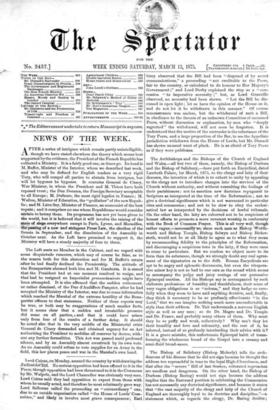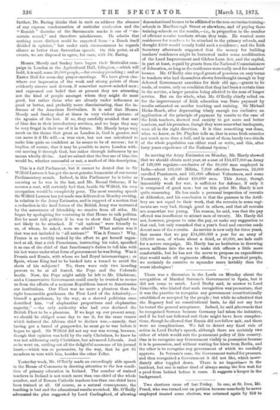The Bishop of Salisbury (Bishop Moberly) tells the arch- deacons
of his diocese that he did not sign because he thought the address too reproachful in tone to the loyal High-Churchmen, and that after the " severe " Bill of last Session, reiterated reproaches are needless and dangerous. On the other hand, the Bishop of Durham (Bishop Baring) would not sign because the address implies that the Eastward position in celebrating the Communion has not necessarily any doctrinal significance, and because it states that "the vast majority of the clergy and laity of the Church of England are thoroughly loyal to its doctrine and discipline,"—a statement which, as regards the clergy, Dr. Baring doubts ; farther, Dr. Baring thinks that in such an address the absence of any express condemnation of auricular confession and the " Romish " doctrine of the Sacraments mai ks it one of "Un- certain sound," and therefore mischievous. He admits that nothing more distinct could be expected from a Bench itself divided in opinion," but under such circumstances he regards silence as better than flavourless speech. On this point, at all events, we are disposed to agree, for once, with Dr. Baring.



































